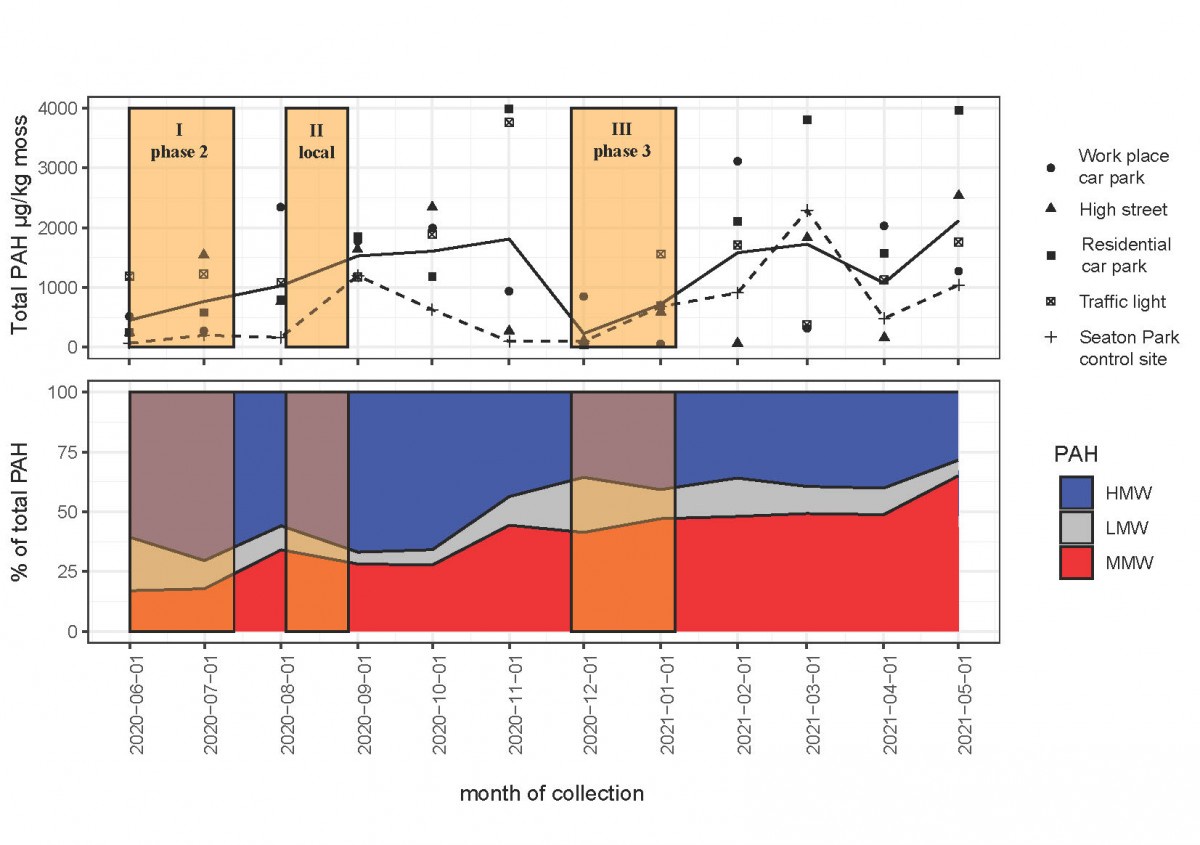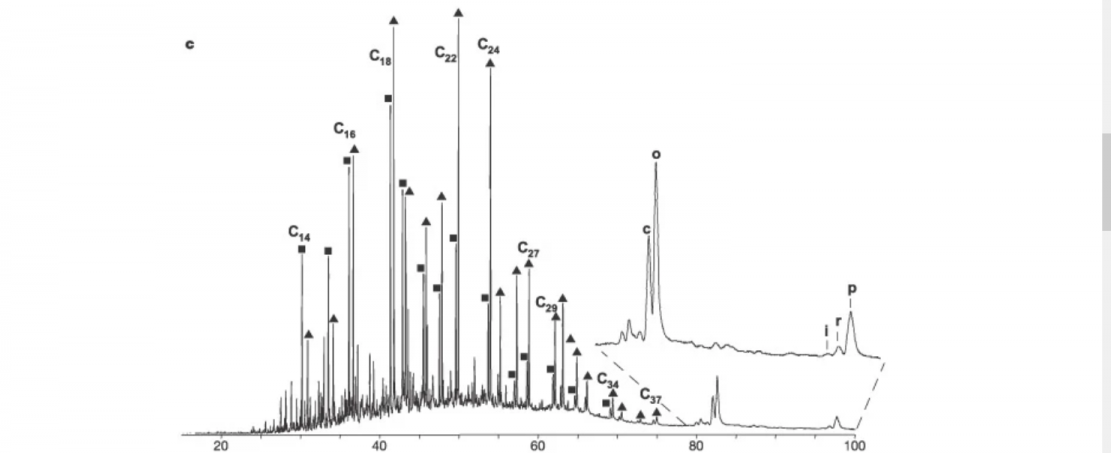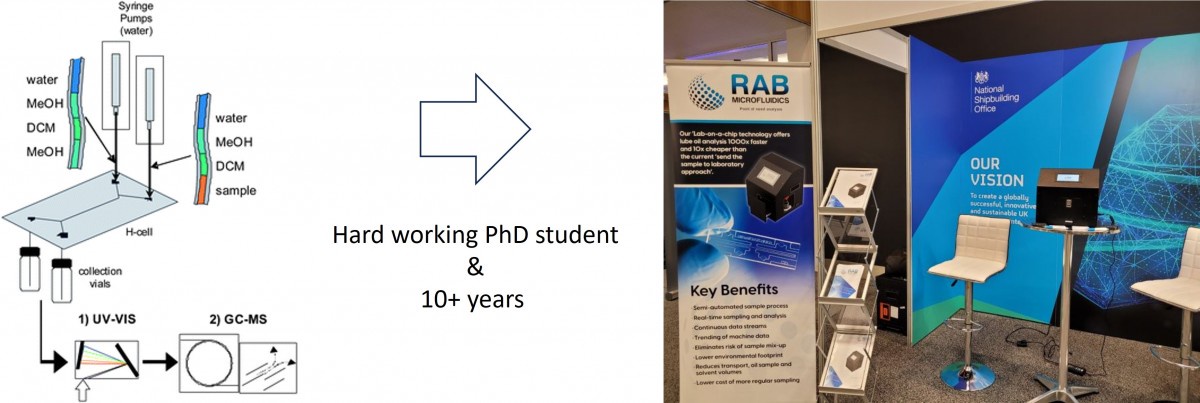
Reader
- About
-
- Email Address
- s.a.bowden@abdn.ac.uk
- Telephone Number
- +44 (0)1224 273467
- School/Department
- School of Geosciences
Biography
Stephen is an Organic Geochemist who researches chemcial fossils and sedimentary organic matter and develops novel analytical technologies for chemical analysis. He has worked on international expeditions as a lead sedimentologist and geochemist. He manages a laboratory that conducts consultancy and research. His students start and run businesses and play leading roles in industry, education and their communities.
Memberships and Affiliations
- Internal Memberships
-
- Course Coorinator GL 4031 (Geochemistry and Geofluids), - a course that along with GL3018 teaches biomarkers, thermal maturiation, biodegredation, basin modelling
- Geochemistry Laboratory Manager
- Member of School Health and Safety Committee
- Radiation Protection Supervisor & Laser Protection Supervisor
- University Enterprise and Innovation Champion
- External Memberships
-
Commercial
- Scientific Advisor – RAB Microfluidics; 2017 - present
- Technical Advisor – Glensol Enviroklean Solutions 2020 – present
Education
Visiting Researcher Kobe University 2021–2022:
Scholastic
- Associate Editor – Frontiers in Organic Geochemistry 2022- present
- Associate Editor – Journal Marine and Petroleum Geology 2019- 2022
- Reviewing Editor – Experimental Results 2019- 2023
Key Participation in International Science
- International Ocean Discovery Program 368 - Lead Geochemist 2017
- International Ocean Discovery Program 370 - Lead Sedimentologist 2016
- Integrated Ocean Drilling Program 337 - Ship's Organic Geochemist 2013
- Integrated Ocean Drilling Program 331 - Ship's Sedimentologist 2011
- NASA Haughton Mars Project - Geologist 2006
- Research
-
Research Overview
Important Projects and Publications
A range of my research is below. Something recent, something old, something commercial and something applied. Maybe something for anyone; if resources permit (normaly time is limiting factor) I am always willing to collaborate. You can also check out my LinkedIn page - I particularly like catching up with old students and hearing from like-minded strangers (the stranger the better)!
Most recent paper (2024): The perturbation of PAHs on mosses in Aberdeen, Scotland, as a consequence of social restrictions imposed during the COVID-19 pandemic. doi.org/10.3389/fgeoc.2023.1320096
My most recent paper is about the measurement of PAH on mosses during the COVID-19 lockdown. Aberdeen does not have its own Environmental PAH monitoring station so instead mosses were used as sampling devices. The changes in pollutant PAH matched changes in traffic as Scotland went in and out of different levels of restriction.

Figure above shows the increases in MMW PAH on mosses in Aberdeen after the Covid-19 restrictions were lifted.
Most cited paper (2005): Biomarker evidence for green and purple sulphur bacteria in a stratified Palaeoproterozoic sea. doi.org/10.1038/nature04068
My most cited paper is about the earliest fossil occurrence (chemical fossil) of a green sulphur bacteria, publsihed at a time when chemical fossils in precambrian rocks were more uncertain than they are now. It involved careful chemical analysis by GC-MS.

Figure above shows the 134 m/z ion chromatogram - the little i is the peak for isorenieratane, evidence for green sulpuhr bacteria.
Most impactful paper (2009): Determination of the asphaltene and carboxylic acid content of a heavy oil using a microfluidic device. doi.org/10.1039/b814495h
This is my most important paper from an economic perspective as its ideas were used to start a company (RAB microfluidics) that attracted > £2 million in start-up funds. The paper is about the design, testing and building of a microfluidic chip and a method to analyse heavy oil. Later the method was used to commercialise a sensor for lubricating oil analysis.

From blue sky idea to product - took a very hard working PhD student (Dr Alabi, 10+ years and input from many others)
Consultancy Work (2023): Detection of nano-particles in oils during waterflood experiments
A local SME asked me to develop a method and use it to detect nano-particles in oil at sub 1% concentrations. The method was applied to both core flood experiments and real time adsorption experiments.
- Publications
-
Page 4 of 4 Results 76 to 95 of 95
Shock chemistry of organic compounds frozen in ice undergoing impacts at 5 km s-1
Chapters in Books, Reports and Conference Proceedings: Conference Proceedings- [ONLINE] DOI: https://doi.org/10.1063/1.3295281
- [ONLINE] View publication in Scopus
Molecular biomarker records from mid-Proterozoic sedimentary rocks and kerogens
Geochimica et Cosmochimica Acta, vol. 73, no. 13, pp. A793Contributions to Journals: ArticlesPreservation of biological markers in clasts within impact melt Breccias from the Haughton impact structure, Devon Island
Astrobiology, vol. 9, no. 4, pp. 391-400Contributions to Journals: Articles- [ONLINE] DOI: https://doi.org/10.1089/ast.2008.0270
Determination of the asphaltene and carboxylic acid content of a heavy oil using a microfluidic device
Lab on a Chip, vol. 9, no. 6, pp. 828-832Contributions to Journals: Articles- [ONLINE] DOI: https://doi.org/10.1039/b814495h
Survival of organic compounds in ejecta from hypervelocity impacts on ice
International Journal of Astrobiology, vol. 8, no. 1, pp. 19-25Contributions to Journals: Articles- [ONLINE] DOI: https://doi.org/10.1017/S147355040900442X
Shock Chemistry of Organic Compounds Frozen in Ice Undegoing Impacts at 5 km s(-1)
Shock Compression of Condensed Matter, vol. 1195, pp. 871-874Contributions to Journals: ArticlesThe thermal alteration by pyrolysis of the organic component of small projectiles of mudrock during capture at hypervelocity
Journal of Analytical and Applied Pyrolysis , vol. 82, no. 2, pp. 312-314Contributions to Journals: Articles- [ONLINE] DOI: https://doi.org/10.1016/j.jaap.2008.05.002
Surface-enhanced Raman signatures of pigmentation of cyanobacteria from within geological samples in a spectroscopic-microfluidic flow cell
Analytical Chemistry, vol. 79, no. 18, pp. 7036-7041Contributions to Journals: Articles- [ONLINE] DOI: https://doi.org/10.1021/ac070994c
Searching for life on Mars: selection of molecular targets for ESA's Aurora ExoMars mission
Astrobiology, vol. 7, no. 4, pp. 578-604Contributions to Journals: Literature Reviews- [ONLINE] DOI: https://doi.org/10.1089/ast.2006.0110
Exploration of Ellsworth Subglacial Lake: A concept paper on the development, organisation and execution of an experiment to explore, measure and sample the environment of a West Antarctic subglacial lake - The Lake Ellsworth consortium
Reviews in Environmental Science and Biotechnology, vol. 6, no. 1-3, pp. 161-179Contributions to Journals: Review articles- [ONLINE] DOI: https://doi.org/10.1007/s11157-006-9109-9
- [ONLINE] View publication in Scopus
Biomarker determination as a provenance tool for detrital carbonate events (Heinrich events?): Fingerprinting Quaternary glacial sources into Baffin Bay
Earth and Planetary Science Letters, vol. 257, no. 1-2, pp. 71-82Contributions to Journals: Articles- [ONLINE] DOI: https://doi.org/10.1016/j.epsl.2007.02.021
Structural characterization of kerogen in 3.4 Ga Archaean cherts from the Pilbara Craton, Western Australia
Precambrian Research, vol. 155, no. 1-2, pp. 1-23Contributions to Journals: Articles- [ONLINE] DOI: https://doi.org/10.1016/j.precamres.2006.12.014
Organic geochemistry of impactites from the Haughton impact structure, Devon Island, Nunavut, Canada
Geochimica et Cosmochimica Acta, vol. 71, no. 7, pp. 1800-1819Contributions to Journals: Articles- [ONLINE] DOI: https://doi.org/10.1016/j.gca.2007.01.006
Intracrystalline lipids within sulfates from the Haughton Impact Structure—Implications for survival of lipids on Mars
Icarus, vol. 187, no. 2, pp. 422-429Contributions to Journals: Articles- [ONLINE] DOI: https://doi.org/10.1016/J.ICARUS.2006.10.013
The extraction of intracrystalline biomarkers and other organic compounds from sulphate minerals using a microfluidic format - A feasibility study for remote fossil-life detection using a microfluidic H-cell
International Journal of Astrobiology, vol. 6, no. 1, pp. 27-36Contributions to Journals: Articles- [ONLINE] DOI: https://doi.org/10.1017/S147355040600351X
- [ONLINE] View publication in Scopus
Exploration of ellsworth subglacial lake: A concept paper on the development, organisation and execution of an experiment to explore, measure and sample the environment of a West Antarctic subglacial lake
Life in Extreme Environments. Springer Netherlands, pp. 25-43, 19 pagesChapters in Books, Reports and Conference Proceedings: Chapters- [ONLINE] DOI: https://doi.org/10.1007/978-1-4020-6285-8_2
- [ONLINE] View publication in Scopus
The liquid-liquid diffusive extraction of hydrocarbons from a North Sea oil using a microfluidic format
Lab on a Chip, vol. 6, pp. 740-743Contributions to Journals: Articles- [ONLINE] DOI: https://doi.org/10.1039/B518162C
Compositional differences in biomarker constituents of the hydrocarbon, resin, asphaltene and kerogen fractions: An example from the Jet Rock (Yorkshire, UK)
Organic Geochemistry, vol. 37, no. 3, pp. 369-383Contributions to Journals: Articles- [ONLINE] DOI: https://doi.org/10.1016/J.ORGGEOCHEM.2005.08.024
Biomarker evidence for green and purple sulphur bacteria in a stratified Palaeoproterozoic sea
Nature, vol. 437, no. 7060, pp. 866-870Contributions to Journals: Articles- [ONLINE] DOI: https://doi.org/10.1038/NATURE04068
A catalytic hydropyrolysis method for the rapid screening of microbial cultures for lipid biomarkers
Organic Geochemistry, vol. 36, no. 1, pp. 63-82Contributions to Journals: Articles- [ONLINE] DOI: https://doi.org/10.1016/j.orggeochem.2004.07.010
